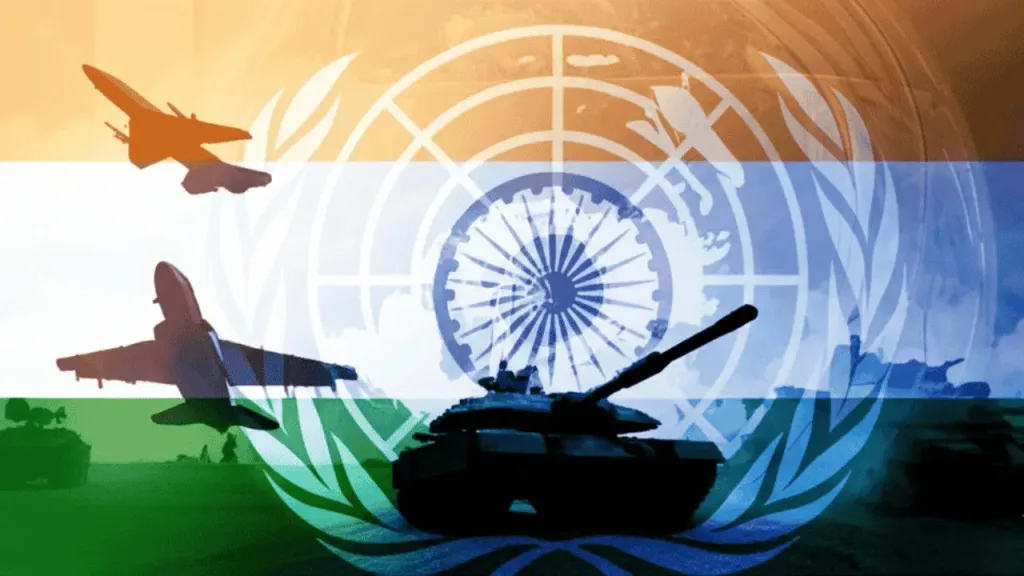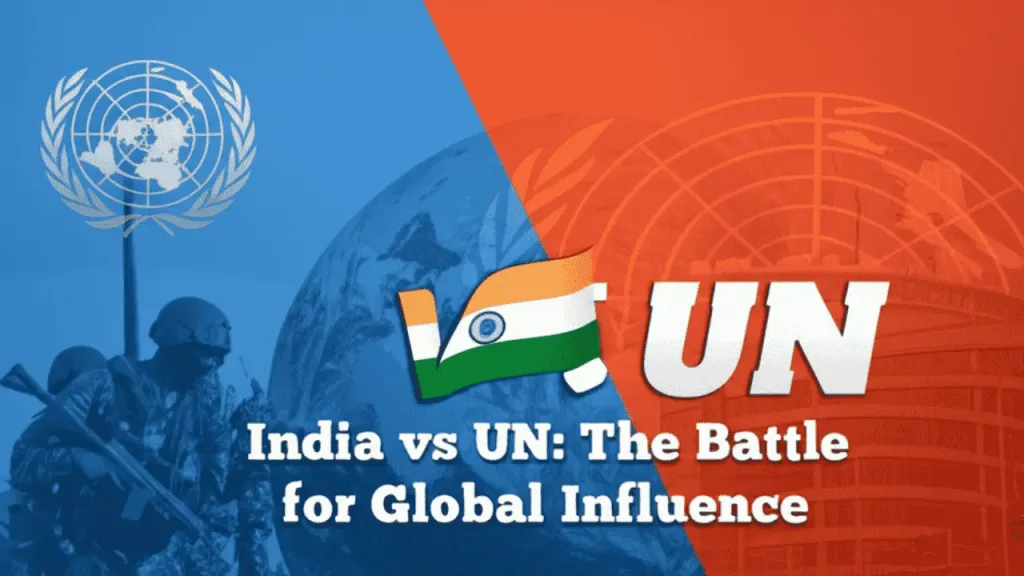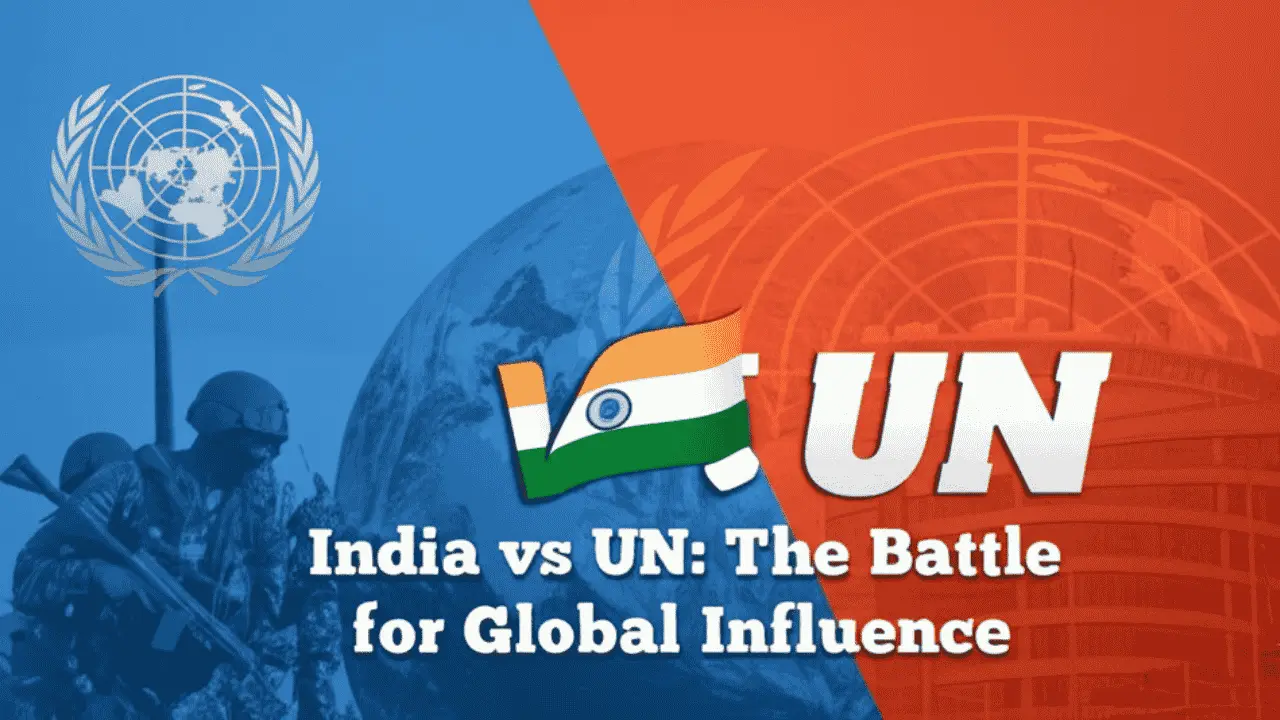The relationship between India and the United Nations (UN) is undergoing a significant transformation, marked by mounting frustration and evolving expectations. Once a steadfast contributor to the UN’s operations, India is now questioning the effectiveness of the international body, particularly when it comes to addressing the pressing geopolitical issues that affect the region. As tensions simmer in Kashmir and the broader South Asian landscape, India’s growing discontent with the UN is becoming increasingly evident.
A Change in Financial Contributions: Questioning the UN’s Value
India, one of the largest financial contributors to the UN, currently donates about $37 million annually to the organization’s regular budget, along with an additional $150,000 for peacekeeping operations. But as international crises continue to unfold—often with the UN’s slow and muted responses—India has begun to reassess whether these funds are being spent wisely.
The UN’s delayed reactions to regional crises, such as the recent earthquake in Kashmir, have left many in India questioning its capacity to fulfill the mission for which it was founded—maintaining global peace. Statements from the UN often arrive days after disasters, offering little in terms of immediate assistance or actionable solutions. These growing frustrations have sparked a debate within the Indian government about reducing or halting its financial contributions to the UN, particularly if the body fails to demonstrate meaningful action in critical areas.

The Kashmir Conflict: A Friction Point for India and the UN
At the heart of India’s frustration with the UN is the long-standing Kashmir conflict. The dispute, which pits India against Pakistan, has been a source of international tension for decades. Pakistan, with the support of allies such as Turkey, has repeatedly raised the issue on global platforms, calling for international intervention. Yet India, adamantly maintaining that Kashmir is a bilateral issue between itself and Pakistan, has resisted third-party involvement.
In the face of this deadlock, the UN’s involvement in Kashmir has become increasingly contentious. The UN’s Military Observer Group in India and Pakistan (UNMOGIP) has faced growing calls for closure from India, which believes the office no longer serves a purpose in the modern context. The lack of tangible progress on the ground, coupled with the UN’s perceived inaction, has led many in India to question the relevance of the organization in resolving such complex regional issues.
Silence in the Face of Crisis: The UN’s Response to India’s Domestic Issues
One of the most glaring criticisms of the UN’s approach is its inconsistent and often delayed responses to crises. While small-scale protests in Western nations prompt swift statements from the UN, major incidents in India, such as the recent terrorist attack in Pahalgam, receive little more than a muted acknowledgment. This apparent double standard has fueled perceptions that the UN is more concerned with maintaining its global image than with addressing the real and pressing needs of member states.
In contrast, India has been assertive in its diplomatic stance, choosing to act unilaterally when it deems necessary. The country has also adopted a more self-reliant approach to its military strategy, highlighted by the recent deployment of its aircraft carriers, including the INS Vikrant, in the Arabian Sea. This growing military capability signals India’s shift toward regional self-sufficiency, further distancing itself from reliance on international organizations like the UN.
Social Media Bans and the Geopolitical Chessboard
India’s increasing dissatisfaction with Pakistan has extended to the digital realm. In a controversial move, the Indian government has banned the social media accounts of Pakistani officials, including that of Pakistan’s Secretary of Defense, Khawaja Asif, following his admission of Pakistan’s involvement in supporting terrorism. The ban, which also extends to several Pakistani YouTube channels, is part of a broader strategy to curb the spread of what India views as misinformation and propaganda from across the border.
This move has sparked debate within India. While supporters argue that it is a necessary measure to protect national security and prevent the dissemination of fake news, critics caution that such actions could lead to further isolation and hinder the free flow of information. The challenge for India, however, lies in balancing security concerns with the need for open dialogue, particularly as tensions with Pakistan continue to escalate.
A Shift Toward Strategic Autonomy
As India recalibrates its foreign policy and military posture, its approach to global institutions, particularly the UN, is evolving. The country has made it clear that it intends to continue contributing to the UN in the short term, but the future of these contributions remains uncertain. India has signaled its intention to increase its financial support to the UN over the next three decades, potentially reaching up to $100 million annually. However, the continuation of such contributions will likely depend on the UN’s ability to adapt to the shifting global order and prove its relevance in addressing regional conflicts.
This sentiment mirrors a broader shift in global politics. The rhetoric of former U.S. President Donald Trump, who expressed skepticism toward international organizations like the UN and NATO, resonates with India’s growing reluctance to rely on multilateral diplomacy. Instead, India is positioning itself as a regional power capable of handling its security concerns independently.

Looking Ahead: What’s Next for India and the UN?
India’s evolving relationship with the United Nations reflects a broader trend toward strategic autonomy in Indian foreign policy. While the country continues to play an active role in international diplomacy, it is increasingly willing to assert its national interests and prioritize its own security and economic growth over traditional multilateral obligations.
As tensions with Pakistan remain high, the role of the UN in mitigating or exacerbating these conflicts will be a key point of contention. The Indian government’s growing frustration with the UN is unlikely to subside anytime soon, particularly if the organization continues to fall short in addressing regional crises. Whether India will ultimately reduce its financial contributions or demand more accountability from the UN remains to be seen. What is clear, however, is that India’s approach to global diplomacy is shifting—and it may soon be setting the terms of its engagement with international organizations on its own terms.
